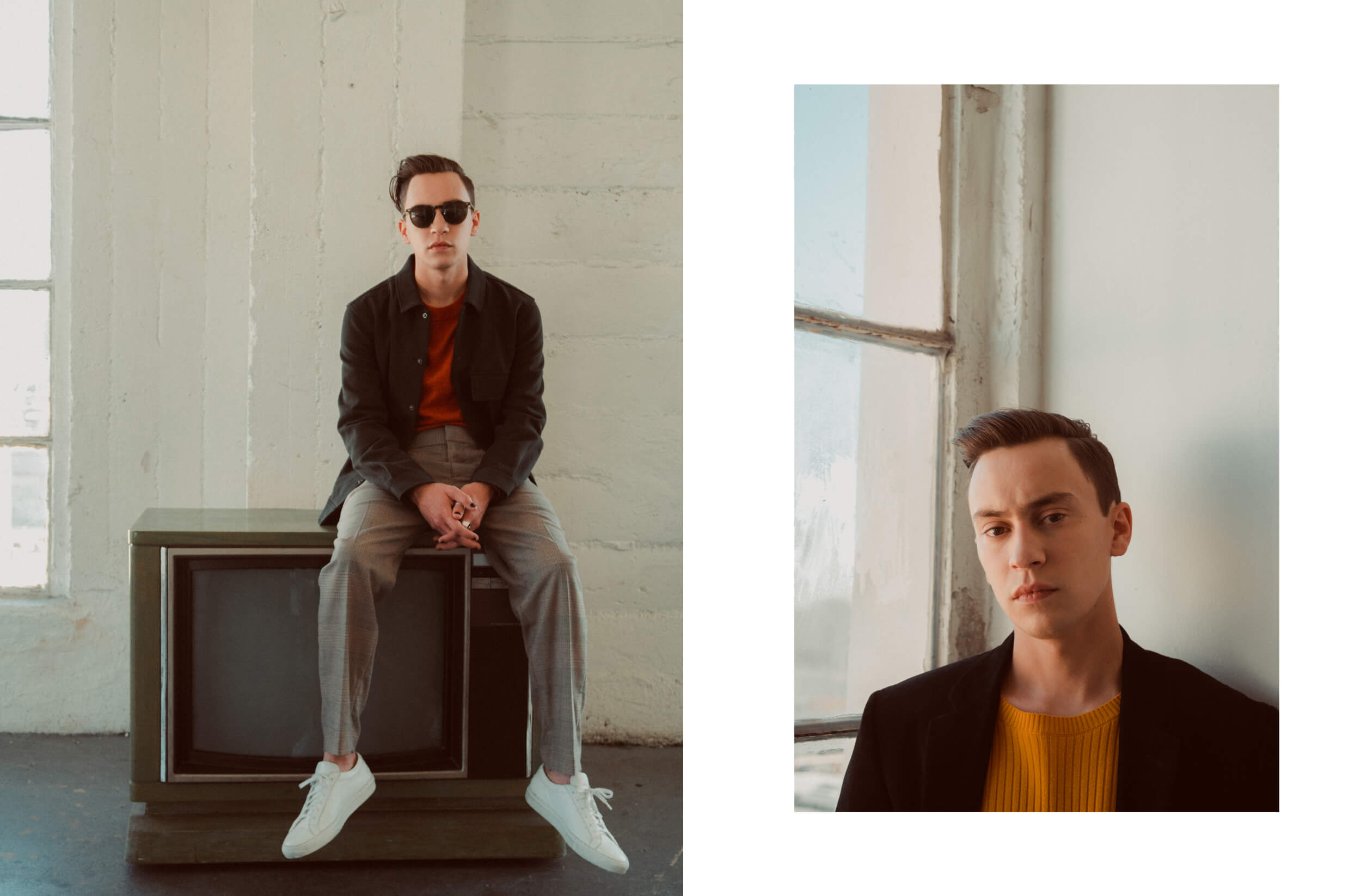If they would ask me who is on my “list” of actors I have admired and followed for a long time, Keir Gilchrist would undoubtedly be in it. An actor who made his way into the world of independent cinema with interpretations that have always left a mark and who then presented himself to the world of streaming and Netflix with a series (“Atypical”) in which he plays an autistic boy, and that talks, like no others series before, about autism, mental health, sexuality, family. Over time it has become an educational series, which also “educate” those who believed they already knew everything about the subject, a series that in many cases has given space for opening and discussion.
But Keir doesn’t stop here. He’s a vocalist of the grindcore band “Whelm” and of the death metal band “Phalanx,” he writes his own music, he just finished producing a short film and, in his mind, there is the plan to direct a film, when the right time comes.
A few days ago, his new independent film “Castle in The Ground” was released on VOD. Here Keir plays a drug dealer during the opioid crisis and he told us about all the difficulties of recovering from a very intense scene and how he approached his role in general.
We met Keir in Los Angeles where we asked him all we could about his Sam of “Atypical” and his new film “Castle in The Ground,” without forgetting about his music and the advice, music-wise, he would give to aliens landing on Earth with no knowledge of human music. In short, we had in front of us a young man who is making his way with a precise idea, without forgetting a touch of hardcore.
What makes you say yes to a project?
I’m really picky when I usually go out for stuff, and if they do want me, it’s pretty easy, because it’s something I’ve already decided I want to do, so that’s why I don’t go out for things if I’m not sure.
Sometimes, agents – not my agent, but agents – will say to you, “Oh, just go out anyway and then decide later,” but I feel it’s a waste of people’s time, so for me, it’s about knowing what I want before.
“Atypical” was renewed for a fourth season and, of course, we know you can’t spill any beans. But kind of aspects would you like to see be more explored?
As far as a fourth season of “Atypical” goes, we are a long way off but I’m excited to see how Sam and Zahid’s roommate situation unfolds and what they get into. I love the dynamic between them and I think the audience does too, so more time together would be great.
We really love “Atypical,” and you are great in it! It’s a great show, but it’s also an important way to discuss mental health. How important do you think it is to talk about those kinds of issues and how do you think the show is helping the discussion?
It’s really important and I think that for way too long now, it’s been kind of the elephant in the room to me, and growing up it’s gone a lot better, but it definitely wasn’t something we talked about openly about amongst my friends. What’s great about television, film, music, whatever is it, it can bring this discussion and help get it out in the open. Something I hear a lot because people come up to me and say it, is, “Oh, I thought I understood my kid’s autism or nephew” or whoever it is in their family or friends of theirs, and then they feel that after watching the show they have a much better understanding and that of course than hopefully encourages them to even do more research and try to really understand the people around them.
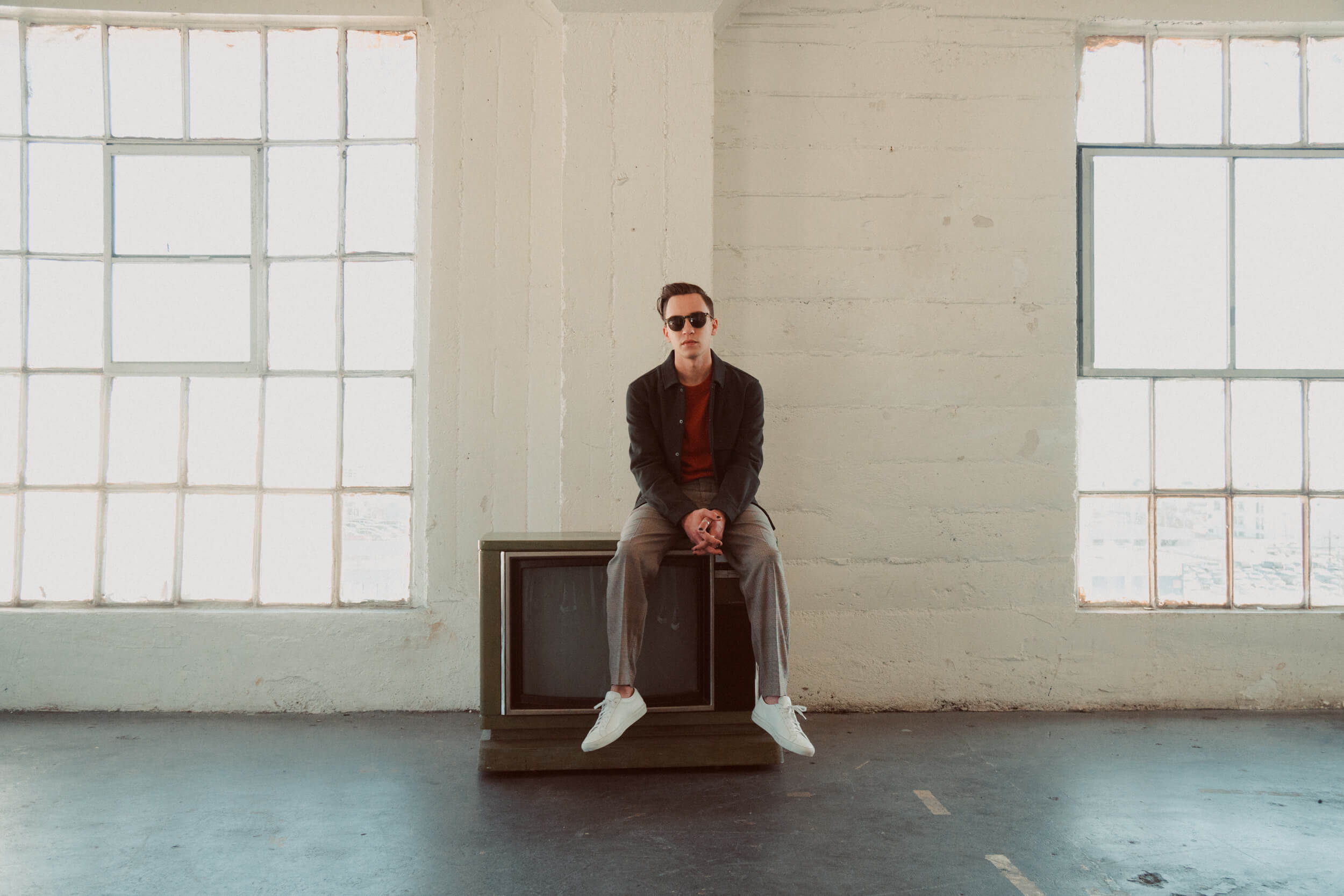
“What’s great about television, film, music, whatever is it, it can bring this discussion and help get it out in the open.”
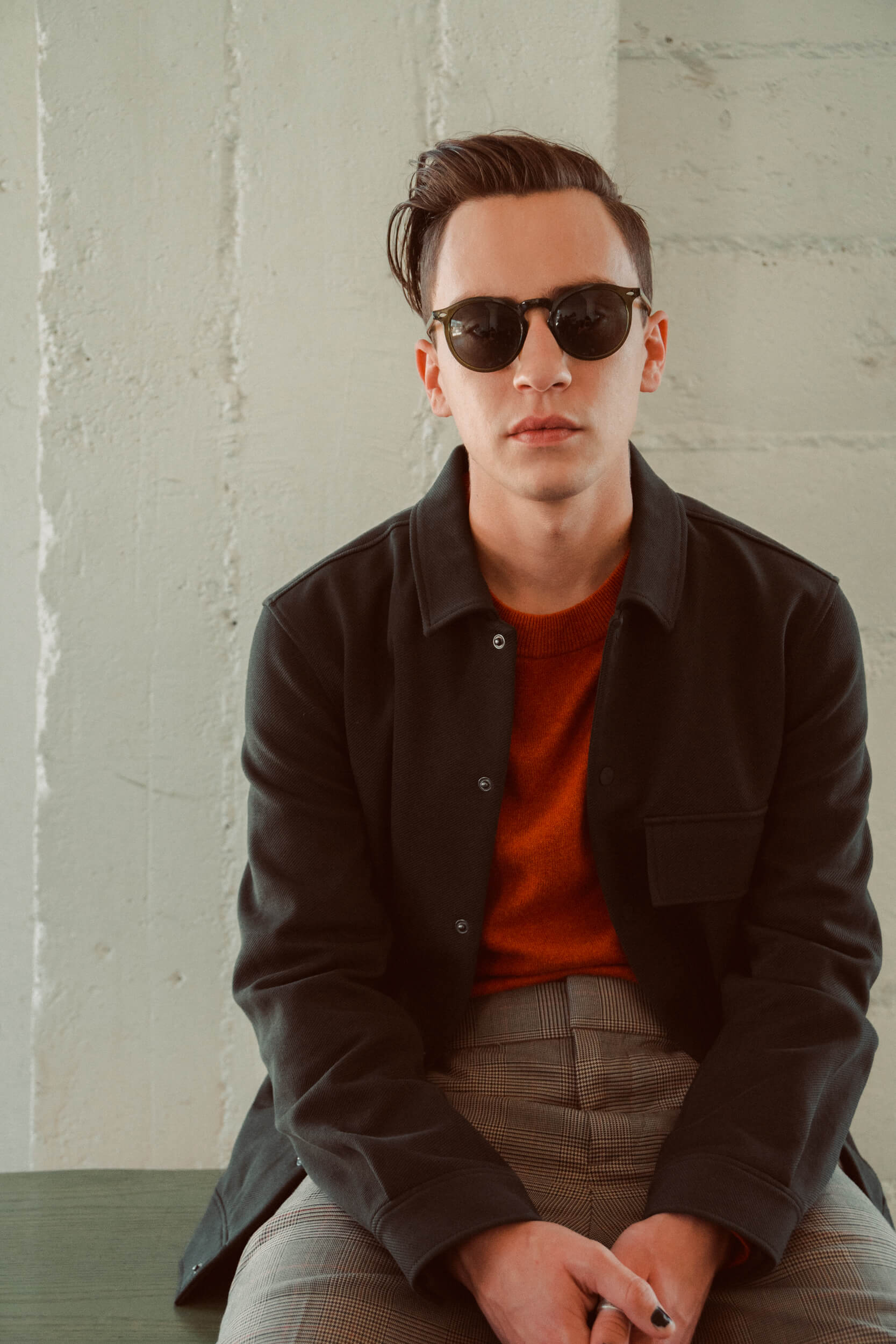
On “Atypical” you deal with a lot of very important topics, like the teenage years, family issues, autism, of course, love; I think that the show manages to find the right balance to tell everything in a way that’s never too much. Do you think that comedy somehow helped in this?
Yes, I think there’s one way you could have made the show, that was just a straight drama, and there is a lot of drama in there, but in a way, the comedy makes it feel much more realistic because to me life is kind of a comedy/tragedy. For example, a lot of people who have someone in their family with autism, they’ll tell you they’re some of the funniest people and they have some of the funniest moments ever, on top of very difficult and sad times, because you fear for this person, because they’re not accepted, but people I know with autism make me laugh more than almost anyone else, so I guess it’s very real and I think Sam’s comedy adds a layer of realism to it.
The show is also fresh because it’s not like you said, only drama, but drama combined with comedy, and it also makes you think a lot about all these important topics, without you even realizing it. Comedy is a great way to deal with all this.
Do you think that playing Sam has changed something in your everyday life or in the way you see things?
Yeah, I guess part of what they liked about my performance as Sam when I came in to audition was, at least from what I’ve been told, that it was a really kind of different and layered performance that showed a certain level of understanding that I think I had an advantage with, just because of my own experiences with people with autism, which I have a lot in my life. I kind of walked in like, “Okay, I understand Sam,” but as we went on and we got deeper into it, I realized that maybe there was a lot that I could still learn, that it’s never too late to keep learning more.
Sam is really close to me at this point, it feels like he’s sort of one of my best friends, even if he’s just in my head.
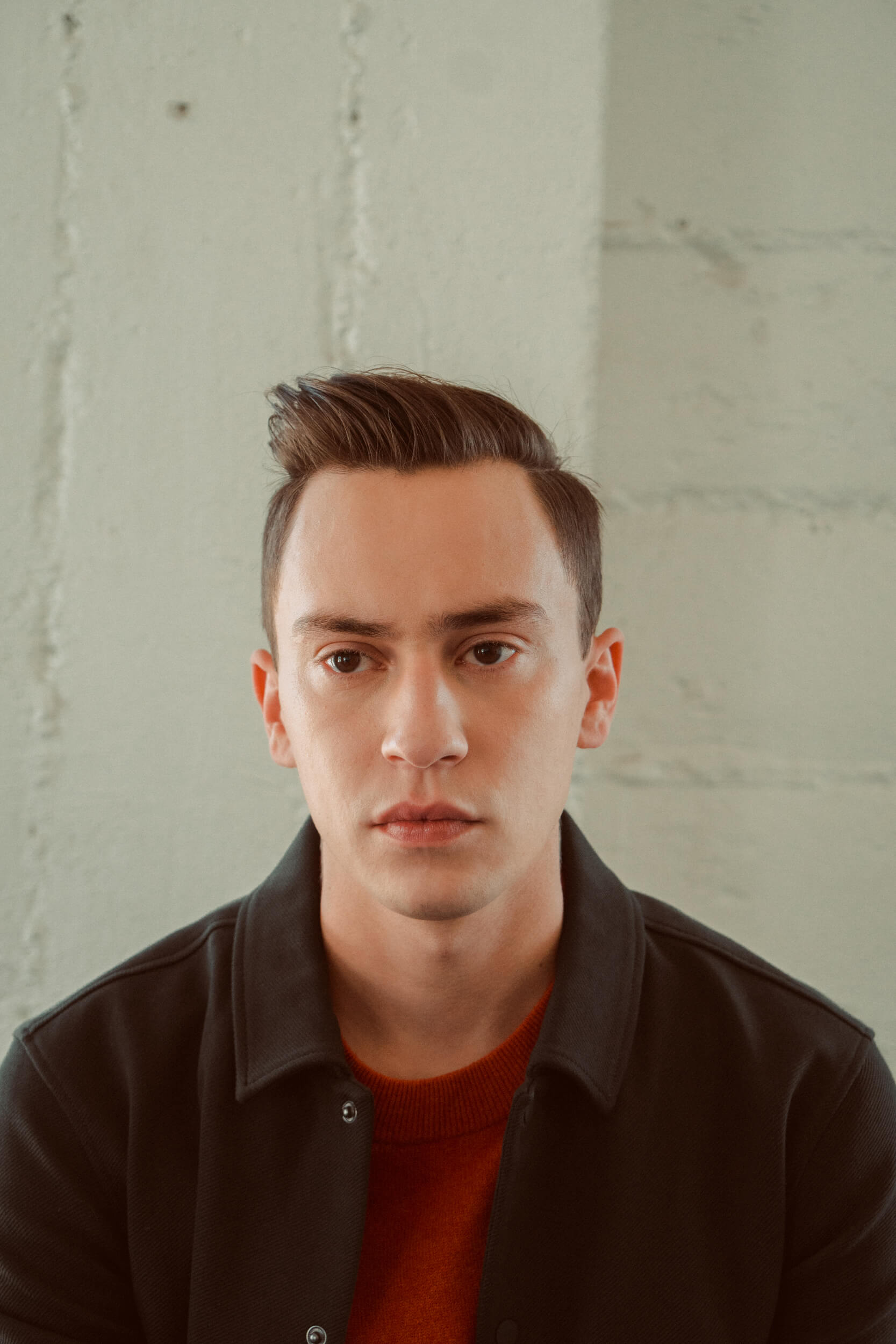
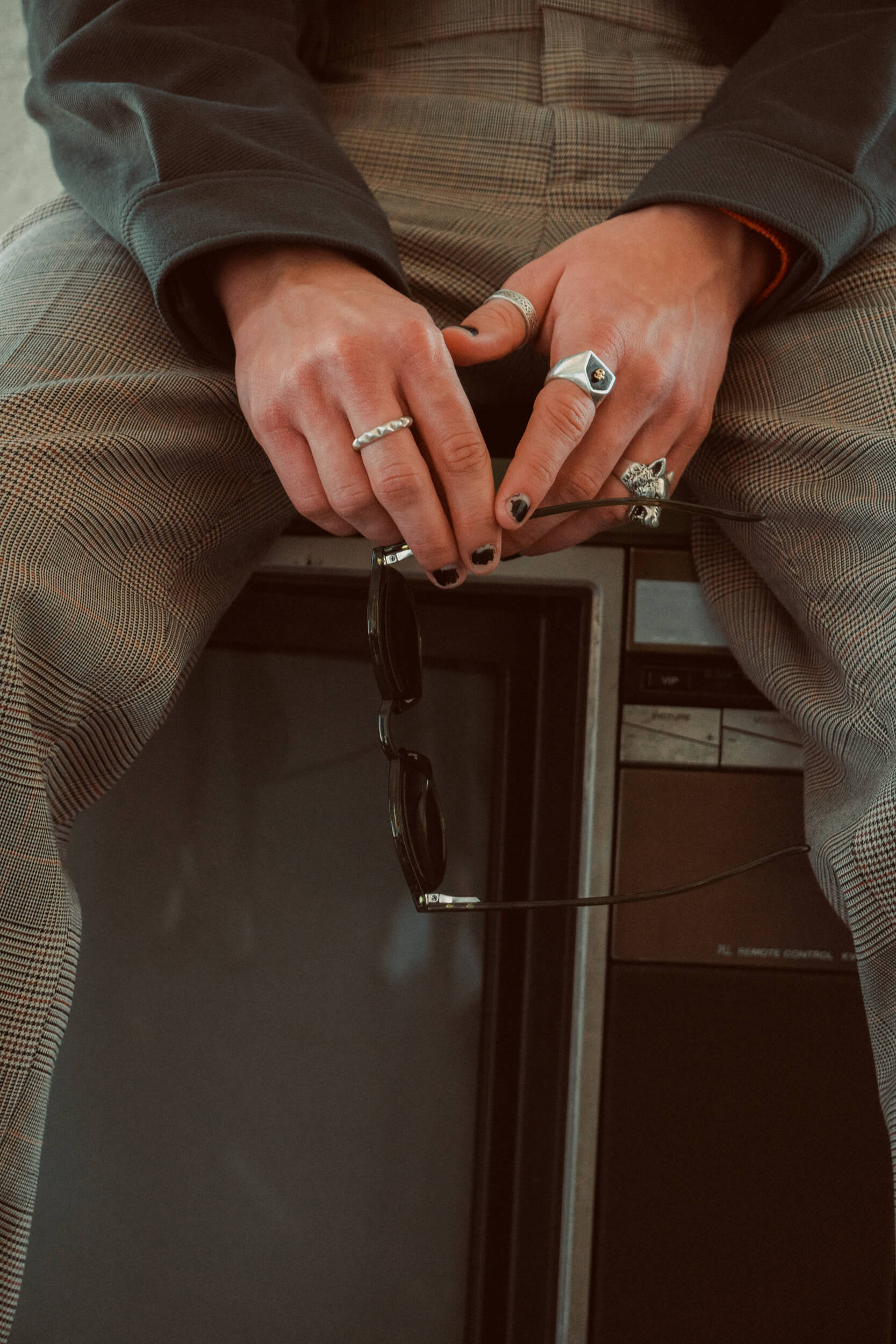
“…as we went on and we got deeper into it, I realized that maybe there was a lot that I could still learn.”
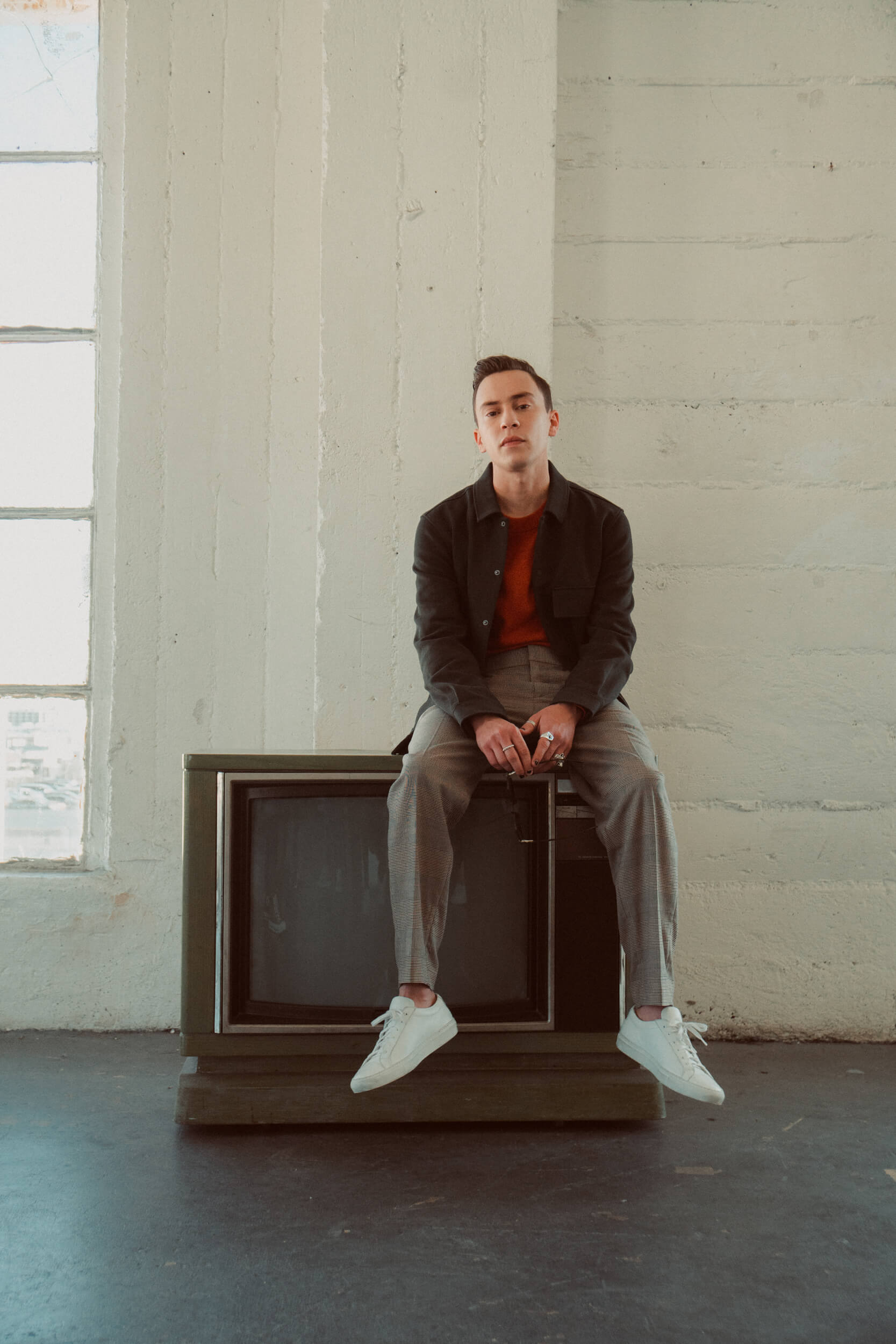
Sam rarely looks adult people in the eye: did you find it difficult or challenging to do so?
Yes. It was working against everything that most actors do, and I believe one of my strengths in the past with acting, I’ve been told by directors, is that I’m a very good listener and I feel really present on camera. A big thing when I help coach other people with acting is to really listen, even if you’ve heard the line a hundred times, don’t be thinking about your next line, really engage with them, so this was a really different thing, Sam naturally really doesn’t look people in the eye, he doesn’t necessarily read their facial expression, it’s more about what they say, and he takes it extremely literally. It was a challenge at first, and I think that also choosing those moments and scenes where Sam has to make a conscious effort to look someone in the eye, because it’s a learned behavior, it’s not natural, that was a unique challenge for this character, for sure.
What’s your favorite genre to play and your favorite one to watch?
My favorite genre to play… I kind of like all of it! I’m hoping, as my career goes on, I get to play with everything. I enjoy comedy, I like doing horror, and really heavy dramas. To watch I’d say I like very dark stuff: a really dark comedy or a very heavy drama. I feel the same about film and music, I like really heavy stuff.
You’ve said before that you would really love to play a period character. Do you have someone in mind?
Anything in a western. I’ve always wanted to be in a western, or even just any kind of war movie would be really interesting, something that really feels like a different world, a different time, and that’s, again, harsh, really intense.
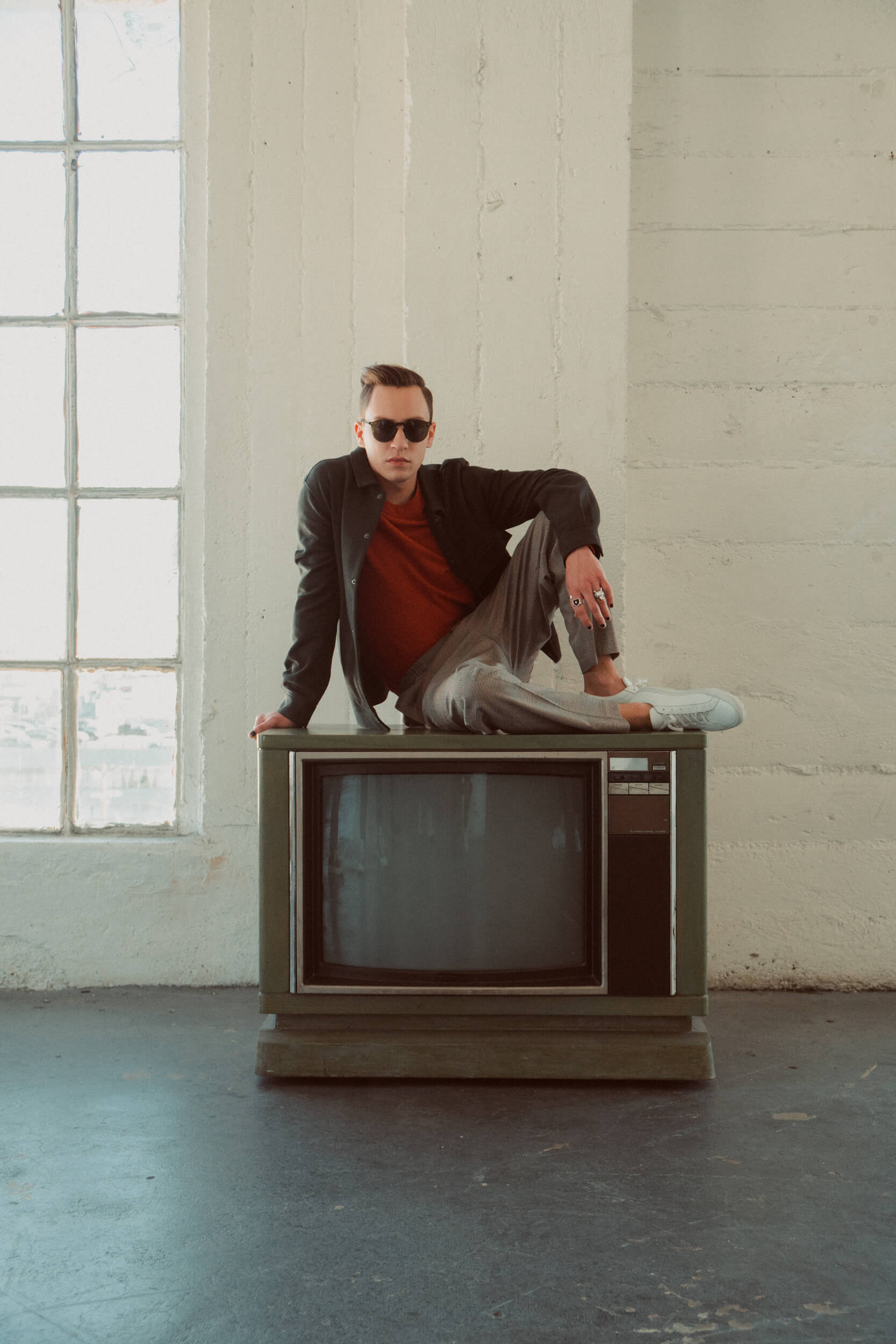
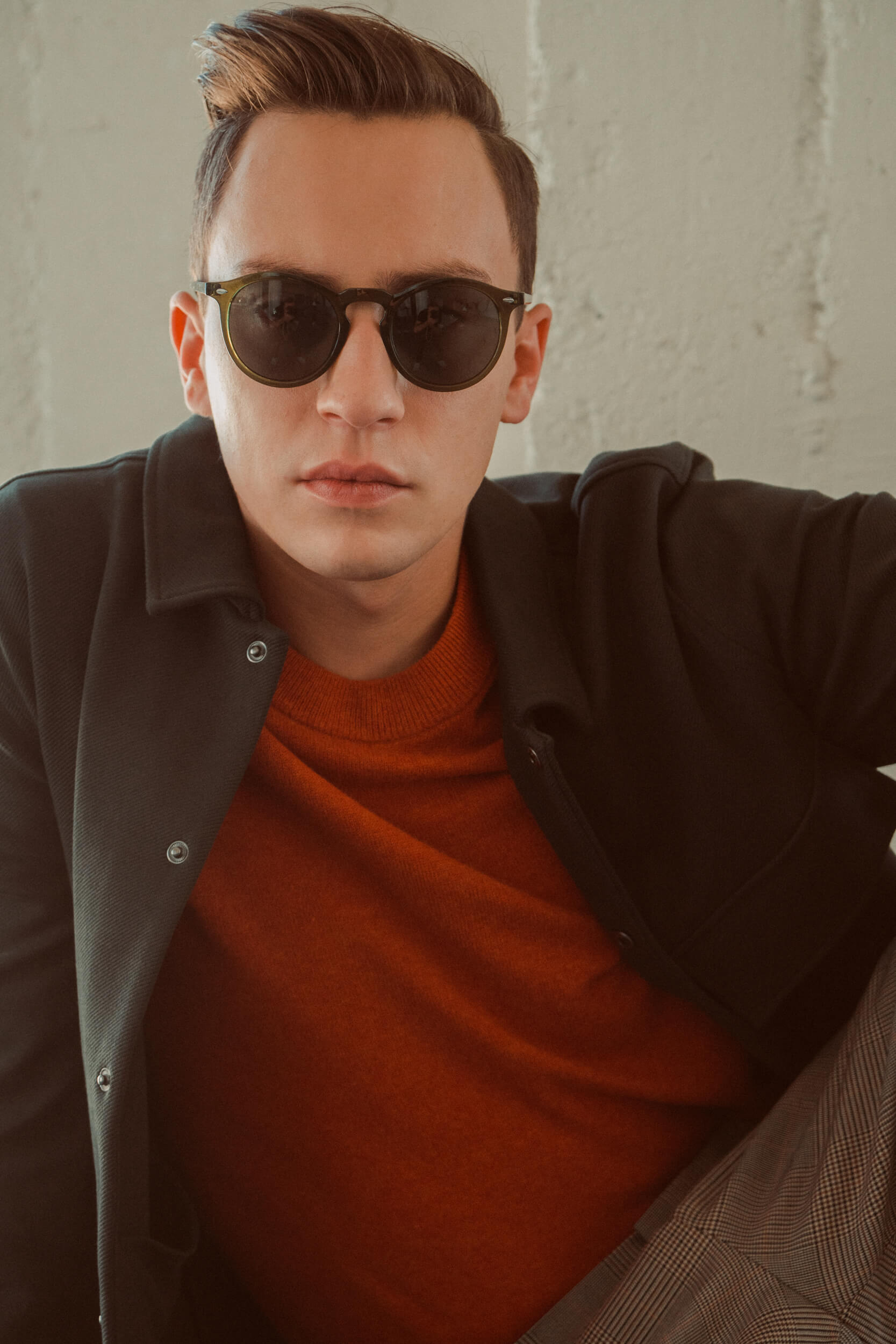
“I’ve always wanted to be in a western.”
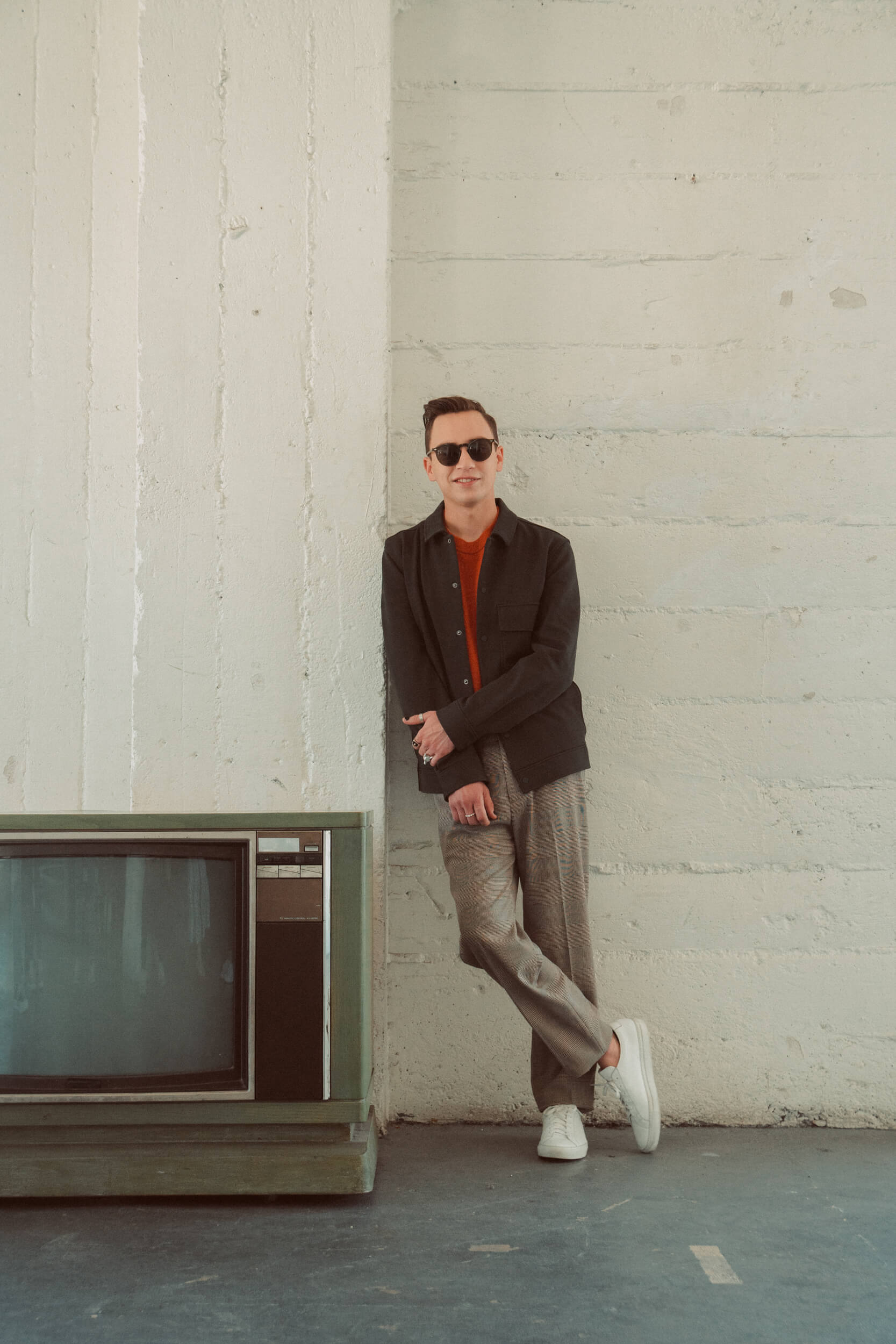
You’re also a musician. Have you ever thought about playing a very famous music personality?
I don’t know, maybe, that’s interesting. If there was the right story being told in the right way, even though music biopics often miss the mark, I’m rarely all that impressed; I think it ends up just being a caricature, so it would really depend on the people involved making it, but I haven’t really thought about that before, honestly, so I don’t know, maybe one day.
What’s the best concert you have ever been to and what’s the best band ever?
That’s hard, because I’ve been going to gigs with my parents since I was 10, so there’s a few that really stuck out and really affected me. I’d say my favorite in recent memory, probably in the last few years, was Orville Pack, I really love his new album “Pony” and going to see him in LA I was just blown away, he made me feel so good for weeks after. He’s an excellent performer and he overall made a great album and even better live, which is hard to do, because sometimes you have a great album and you’re like, “This is good live, not great!”
Favorite band of all time, for me I guess as a formative band would be probably Minor Threat or something like that, in terms of my formative years. But then all-time…it’s really hard, but you know what, I’ll say it, I really love Alkaline Trio which is a really random band, but it’s one of my all-time favorite bands, it’s not a very hardcore thing to say, but great band.
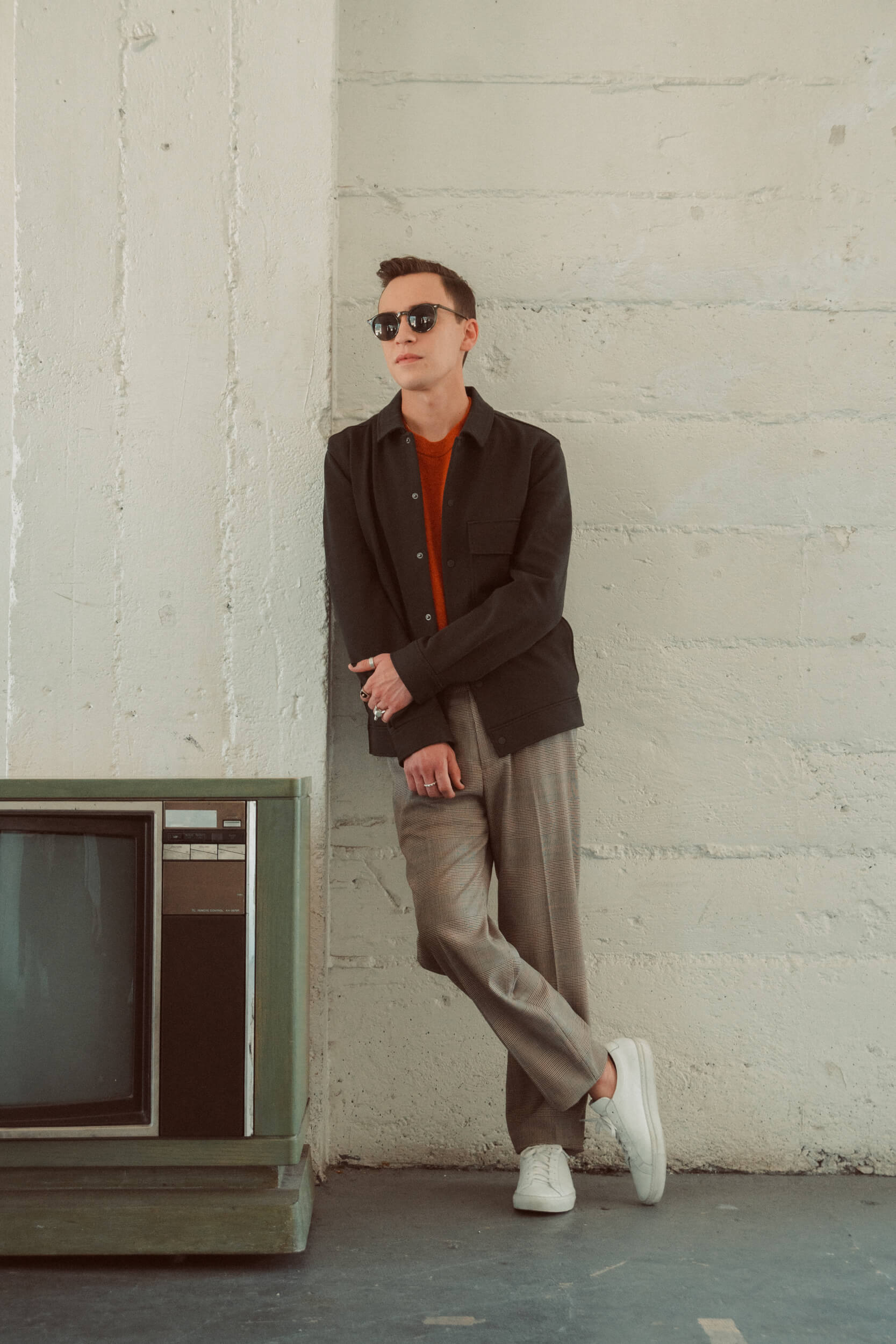
“I really love Alkaline Trio which is a really random band, but it’s one of my all-time favorite bands.”
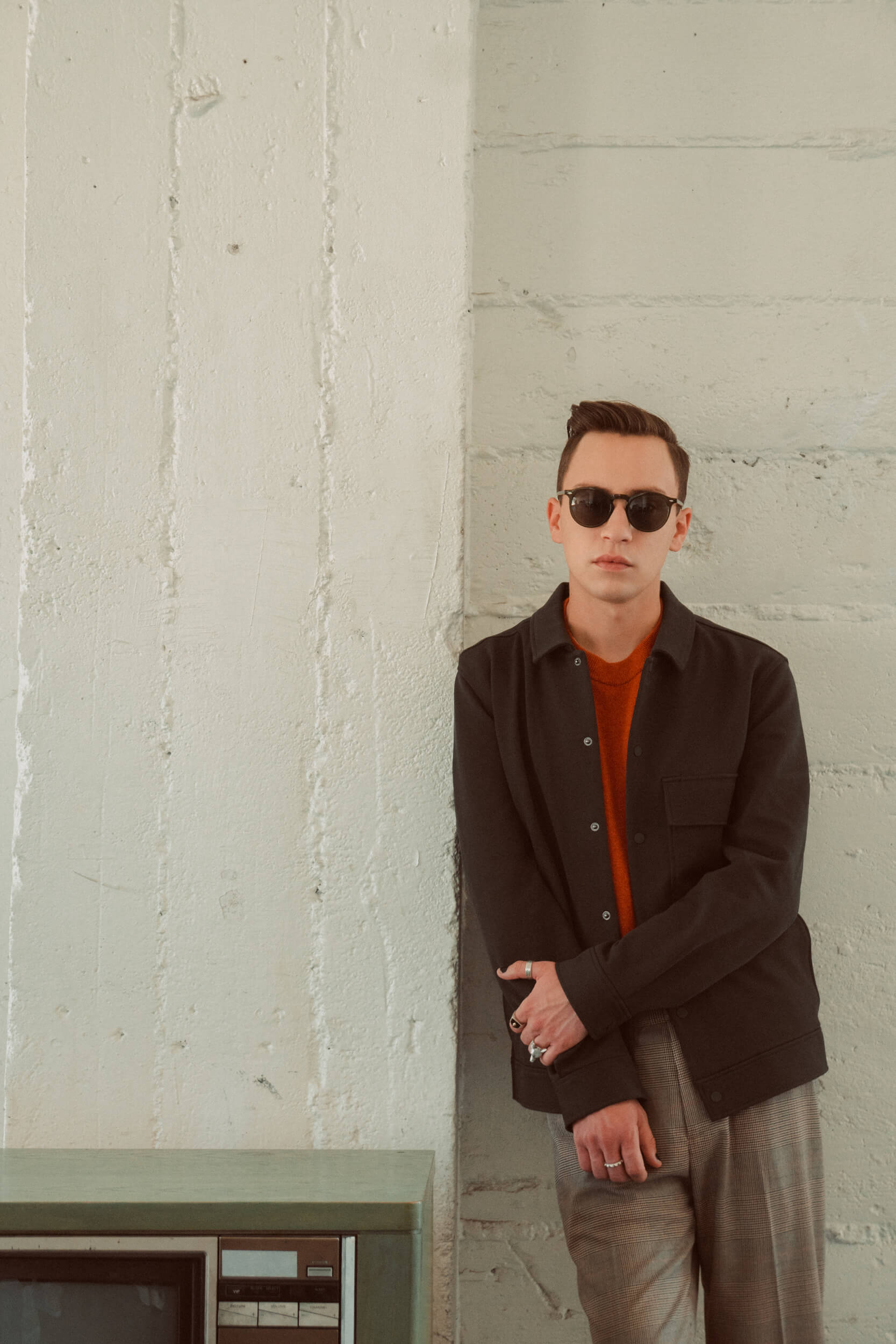
You write your own music, but have you ever thought of writing, directing, producing something for the screen?
When I was growing up, I really wanted to be a director, and the whole time I was on set I was really trying to learn, and watch and ask an annoying amount of questions for the directors I worked with, which I think sometimes made them nervous, but I always explained them, “No, I’m just curious how you’re doing this.” I’ve always wanted to direct, and I do write a bit here and there, I have a very hard time getting something done. It’s hard with so many hobbies, something’s got to give, basically, I feel like I get so creatively drained, I play in two bands, then there’s acting, I’m trying to get into producing so I’m producing a short film right now, which I didn’t write and I’m not directing, but one day I would very much like to do that. I have some ideas of what I would do, so when my schedule frees up, I’m there.
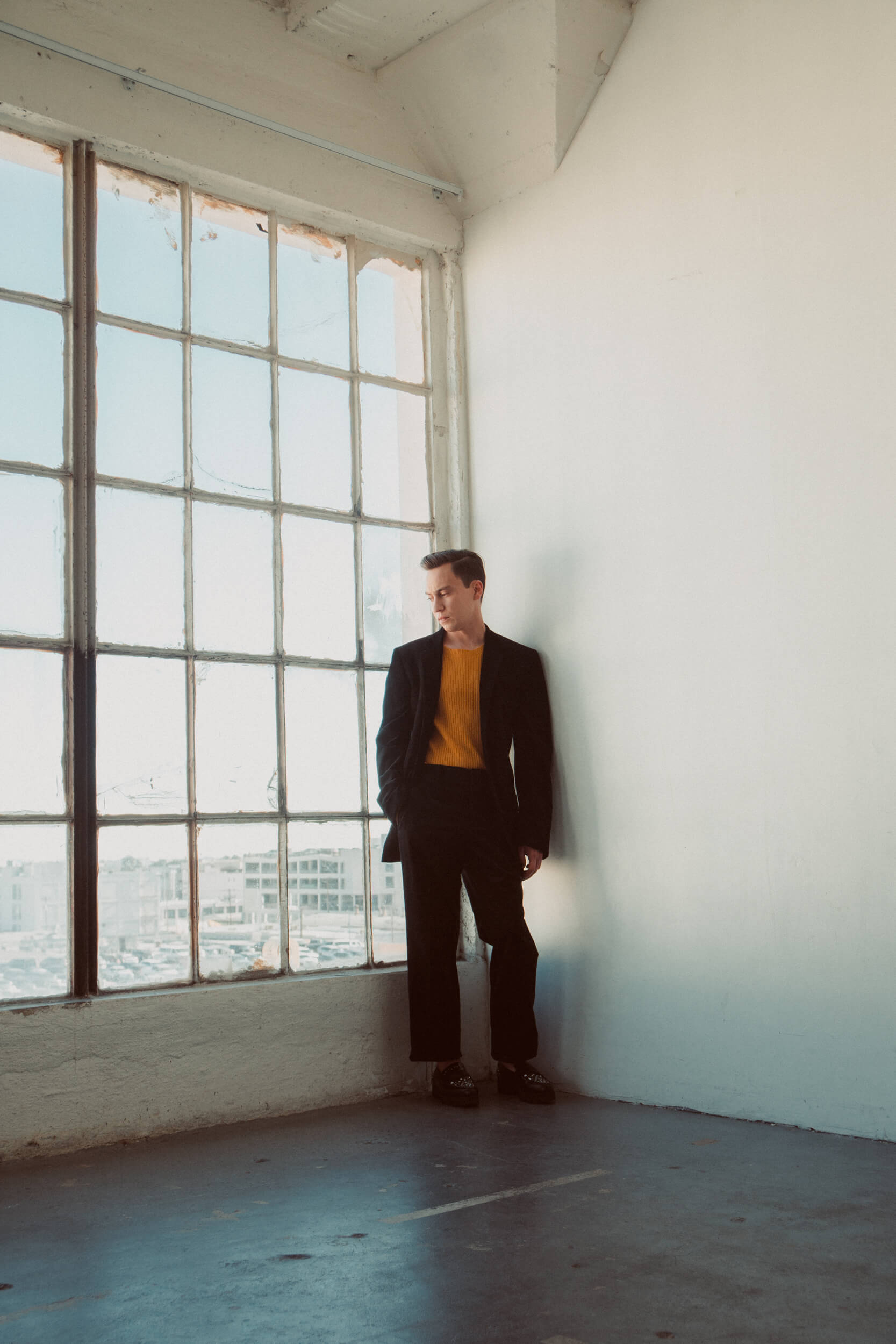
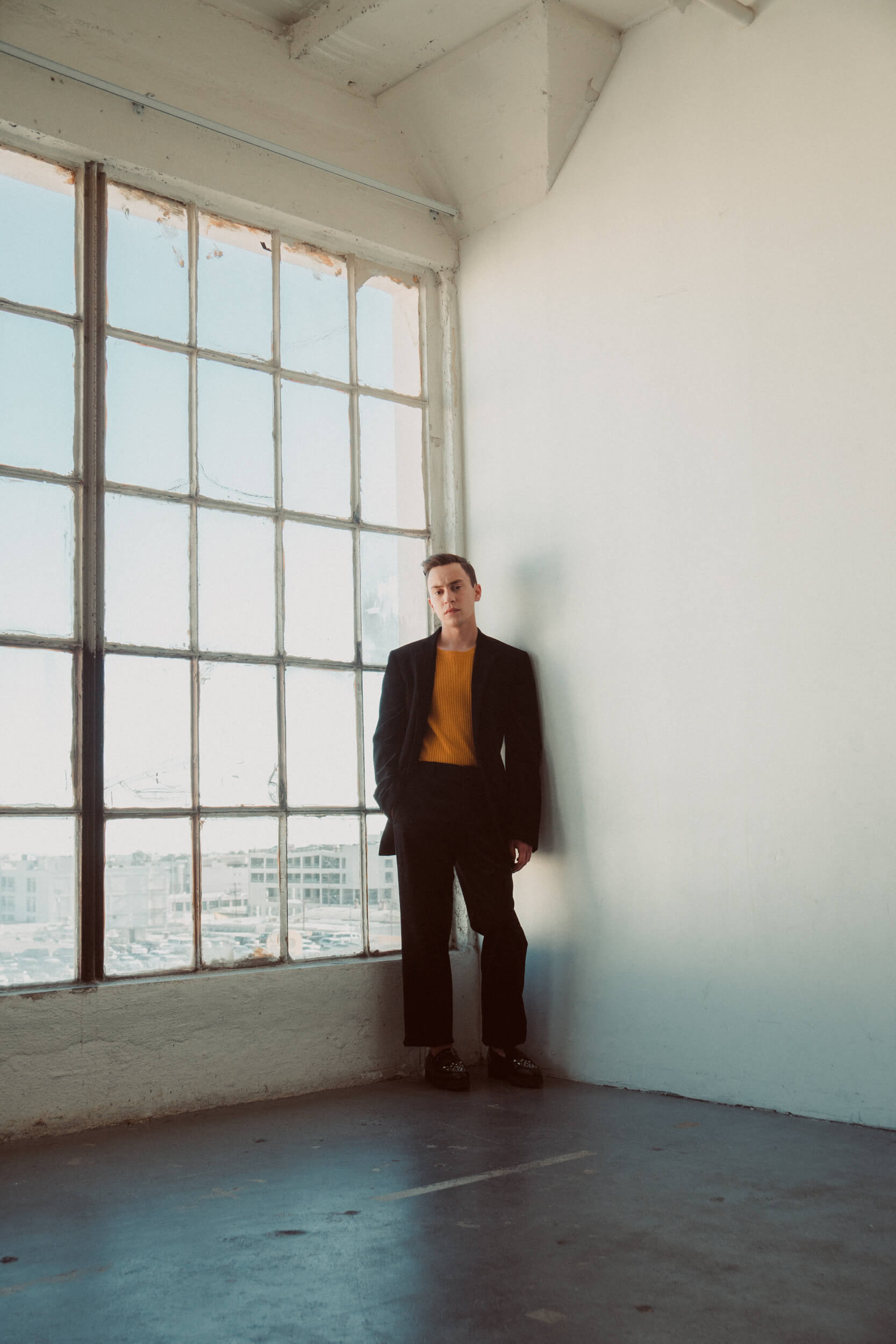
About “Castle in the Ground,” what can you tell us?
Its synopsis is about the opioid crisis, when they took OxyContin off the market, for the most part, they really pulled back on how much they were administrating after basically giving people free room to become addicts, and that’s when Fentanyl flooded the market because there was this need on the street for drugs, and Fentanyl killed and is still killing so many people, so it takes place right when that happens.
How did you prepare for your role?
It’s a tragic story about a few different individuals who get wrapped up in this unfortunate situation and I play a drug dealer and I based it off a couple of kids I grew up with, that I can’t name, that I no longer speak to, and I think what was interesting about that part, and I talked to the director, Joey [Klein], too about it, was that it’s easy to play the drug dealer, the evil drug dealer, but obviously, these guys are getting wrapped up in shit too, they’re trying to be cool, they get over their head, they don’t mean to get people hurt, but they do, so I tried to create a character that wasn’t just like a caricature, like a bad drug dealer.
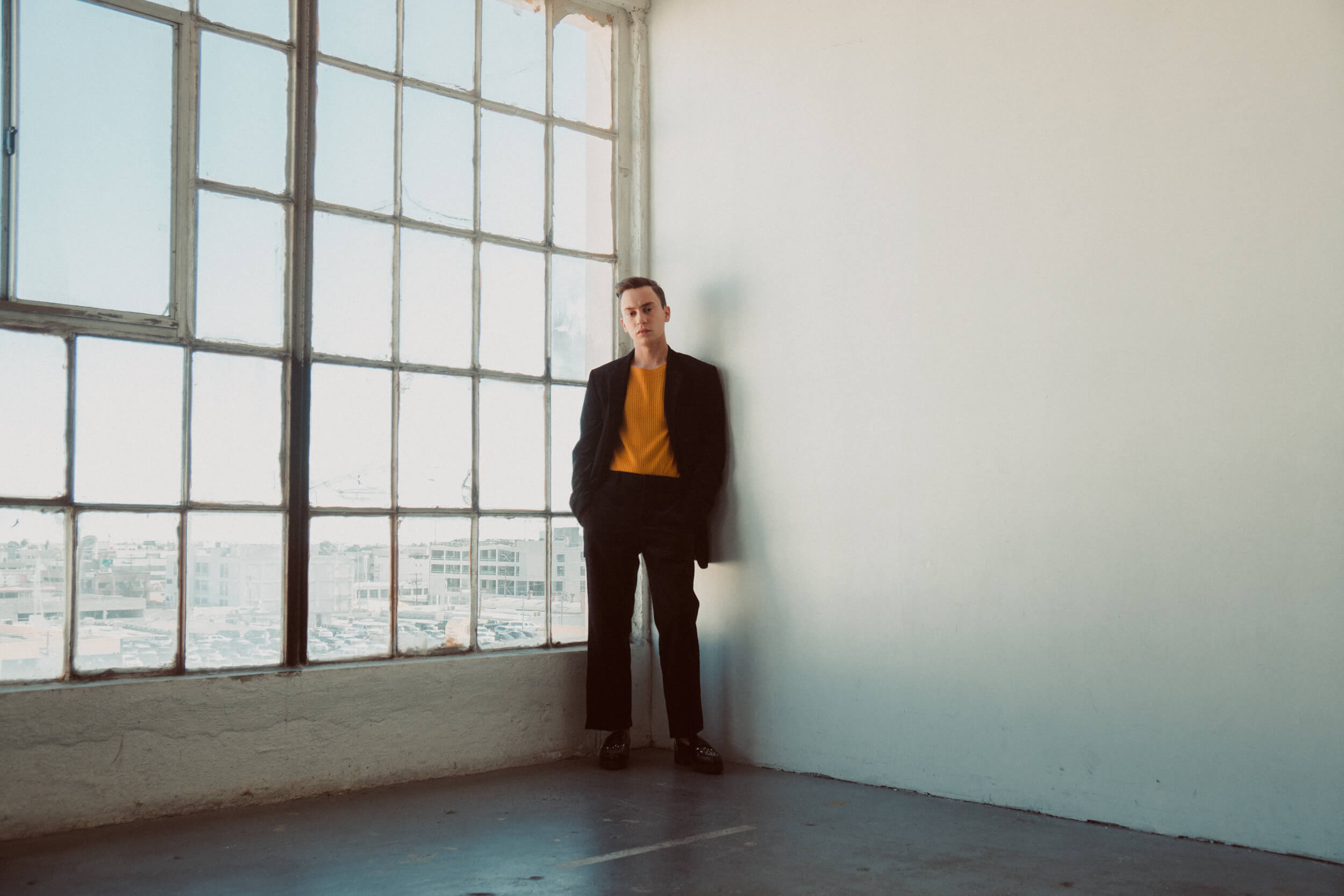
“I play a drug dealer and I based it off a couple of kids I grew up with.”
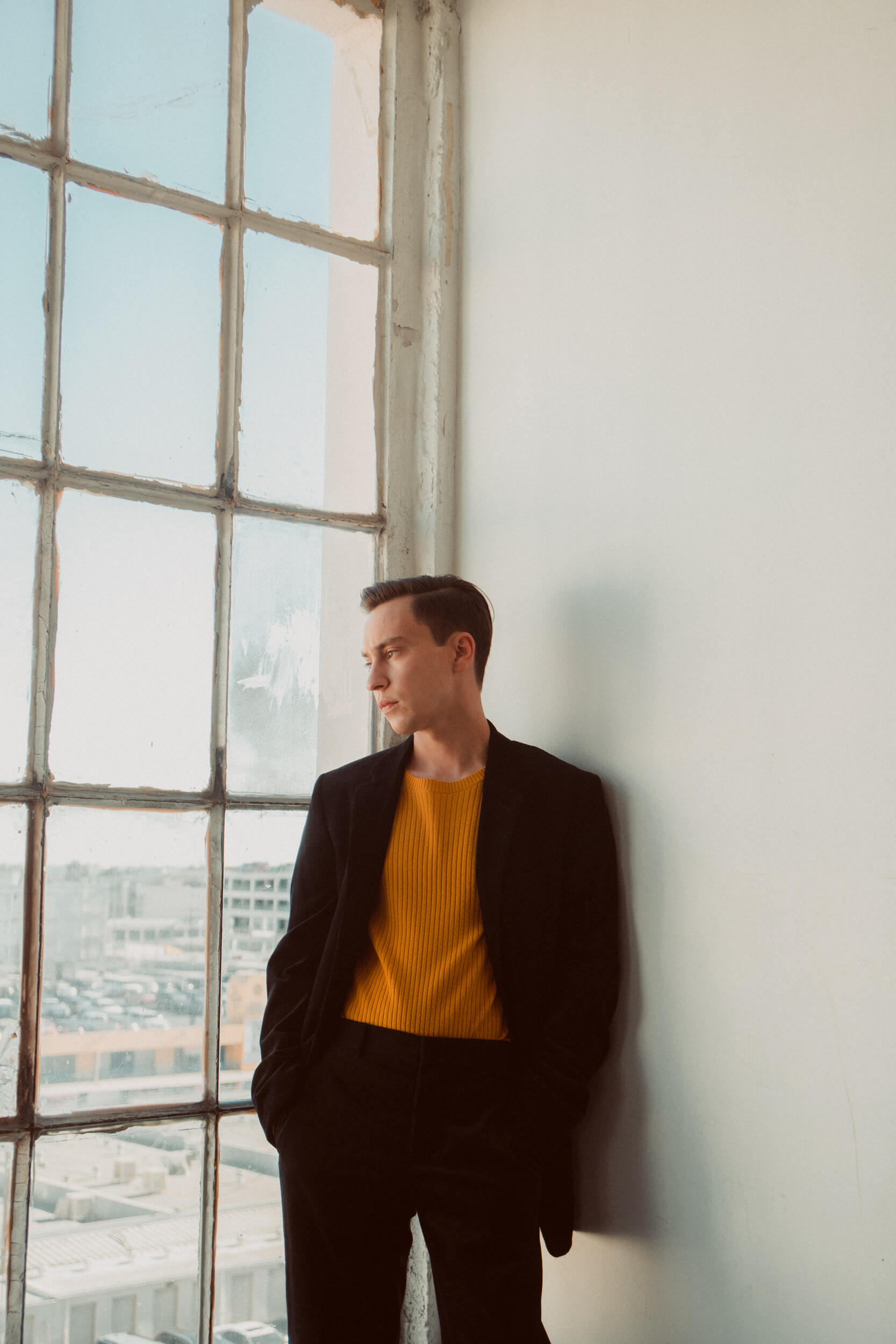
Was there a scene in this movie you found particularly intense to shoot?
Yes, just the way the scheduling worked out because it’s an indie movie: on our first day we had an 11-page scene that’s basically the climax for my character and I was exhausted, also to walk in and be like, “Okay, I’m figuring out where I am,” and then just straight into this life or death situation, basically, that was tough.
We’ve talked about intense scenes, but how do you “recover” from them?
My way of recovering from work is to go home and shut off. Maybe listen to music or read a book. I need to give my brain time to recover for the next day. When I actually finish an entire shoot, I always go out into nature. It’s the only thing that really helps me put the project behind me and get back to myself. I’ll go out to the desert or the mountains with some friends, my partner, and my dog and spend a week enjoying some peace and quiet. While out there I’ll ignore my phone unless it’s something super important or an emergency.
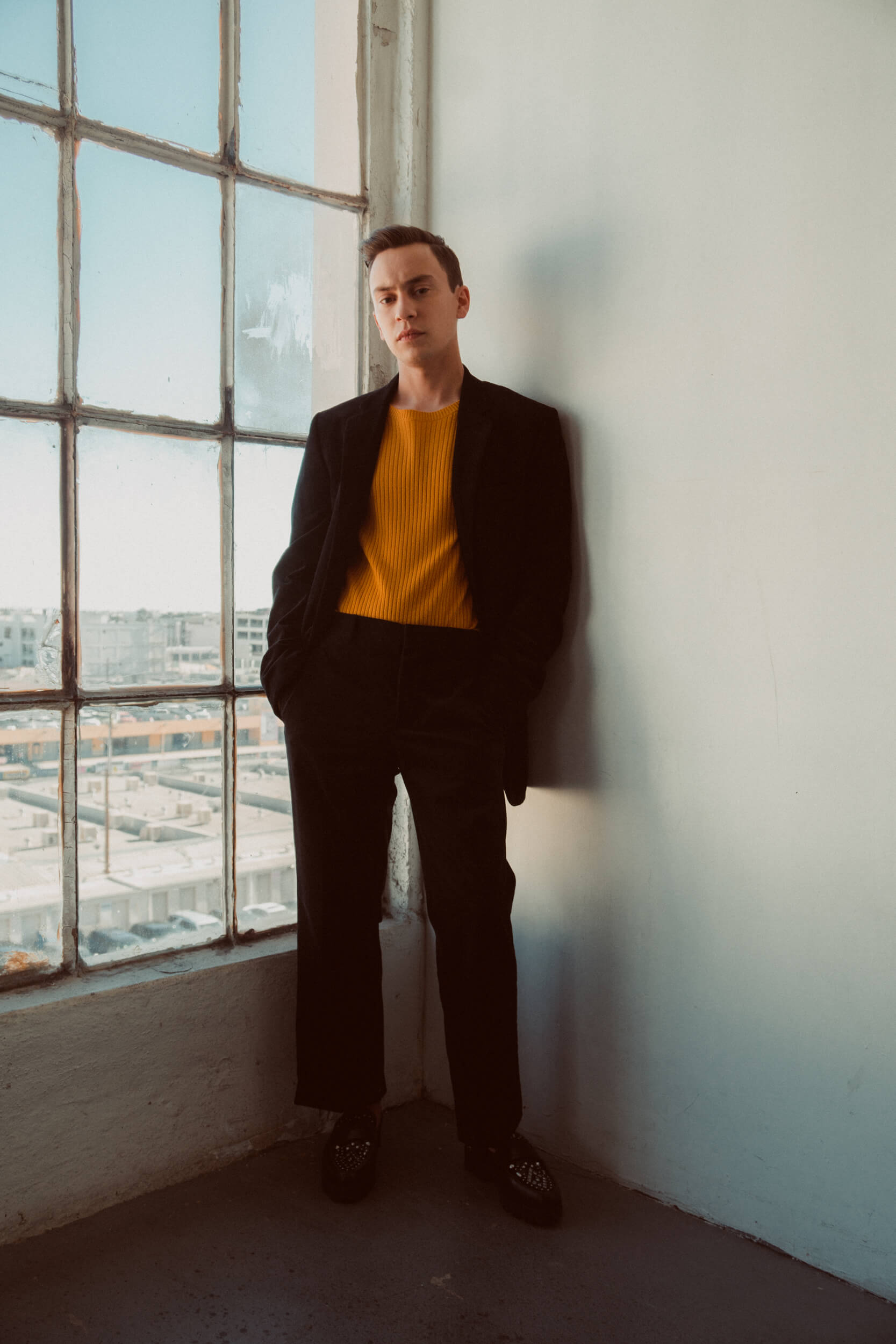
“When I actually finish an entire shoot, I always go out into nature. It’s the only thing that really helps me put the project behind me and get back to myself.”
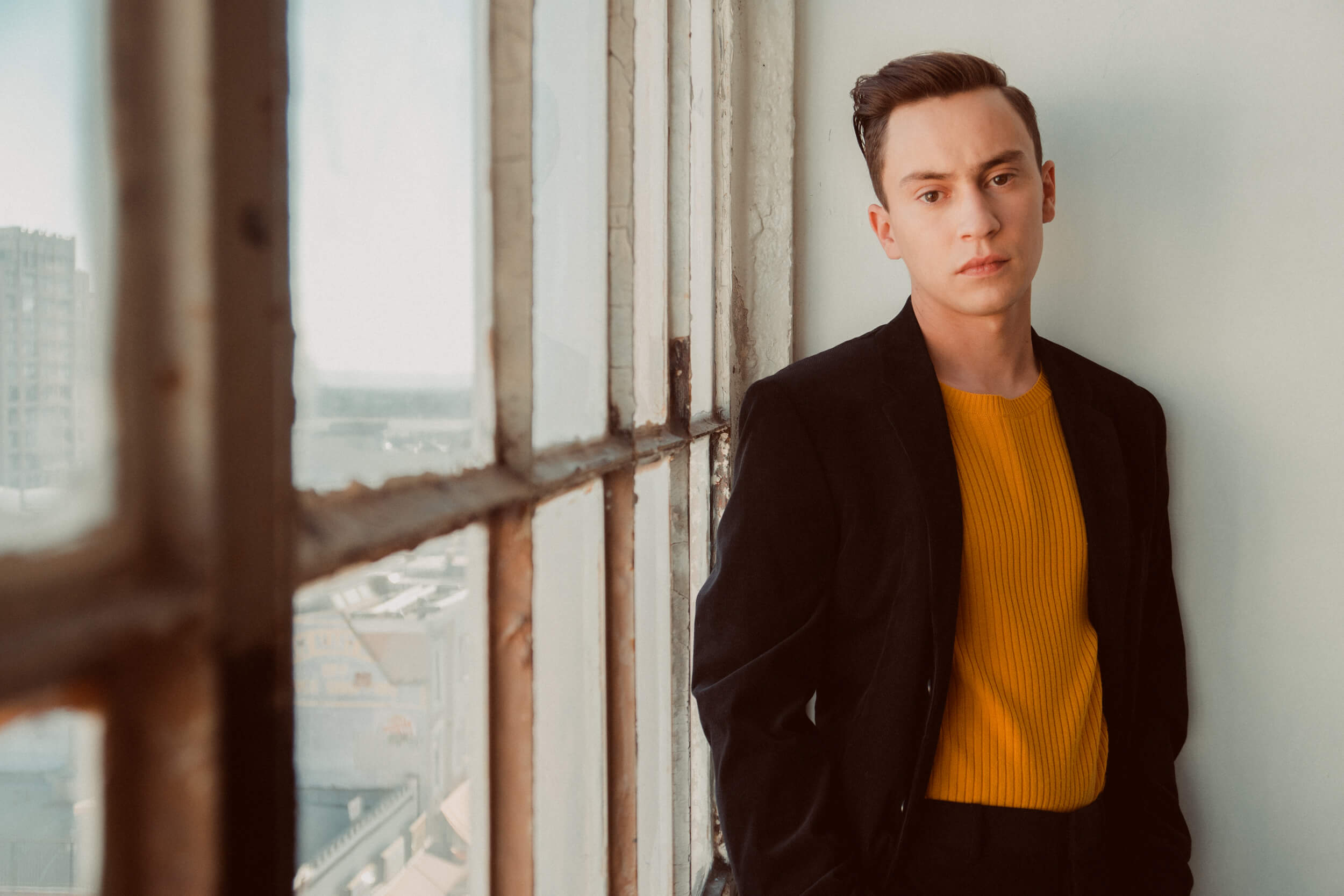
How did you work with the other members of the cast on your interactions in the scenes?
“Castle In The Ground” was a very challenging shoot because we really didn’t have any fun scenes. They’re all high tension. That said, the other cast members were so professional that we were able to have a few laughs here and there. Mostly though we weren’t there to goof around, we were there to work hard and tell a very sad story. I really enjoyed working with such experienced and talented actors and would do it again in a heartbeat.
How would you like to see this film resonate?
I think I can speak for everyone involved when I say that the point of this film was to shine a light on the opioid crisis and tell the story of a few people that get sucked into the world surrounding it. I’d like to see people who have had/are having experiences with this world relate to the story, and maybe for those that aren’t aware to become more aware of just how terrible the situation is.
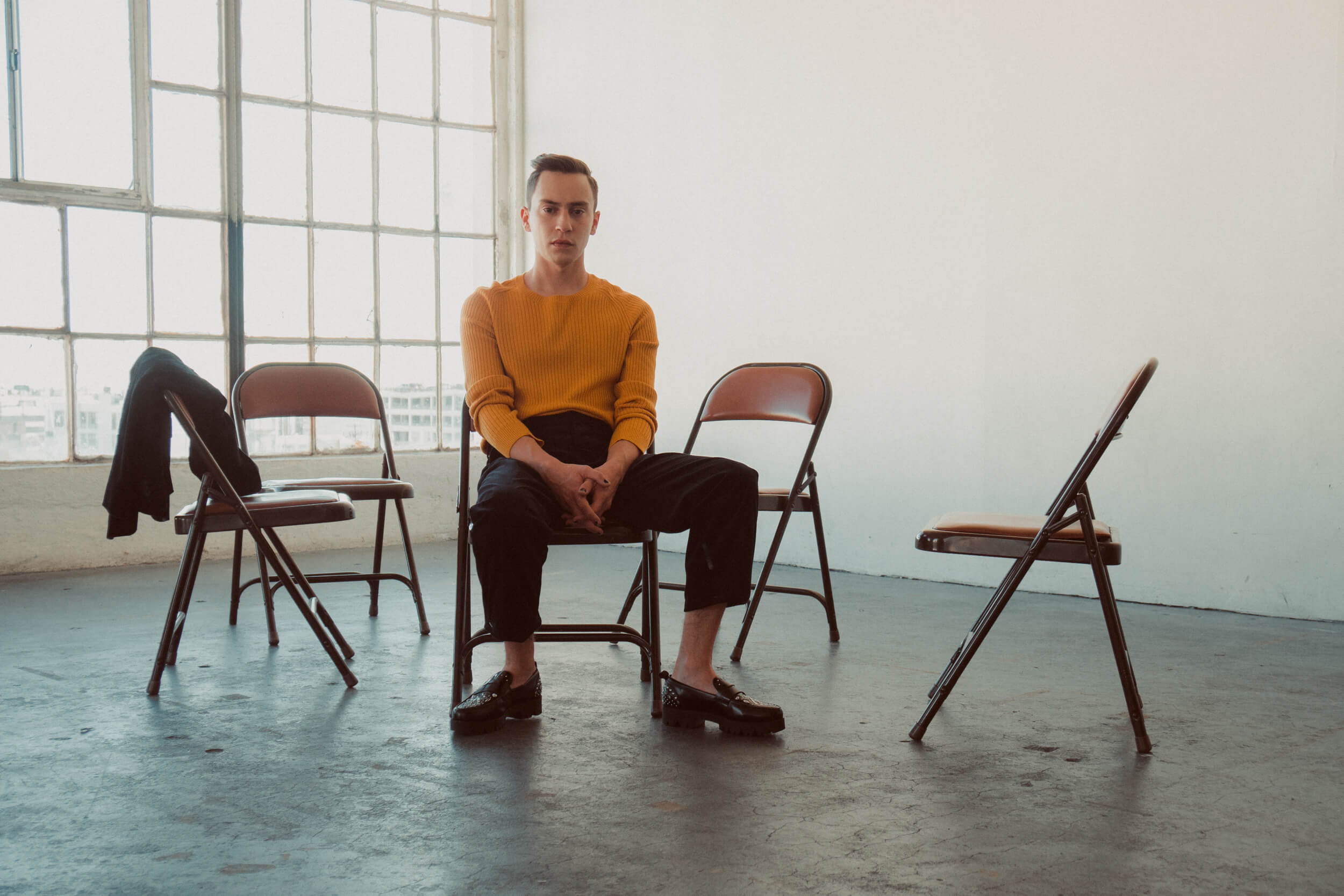
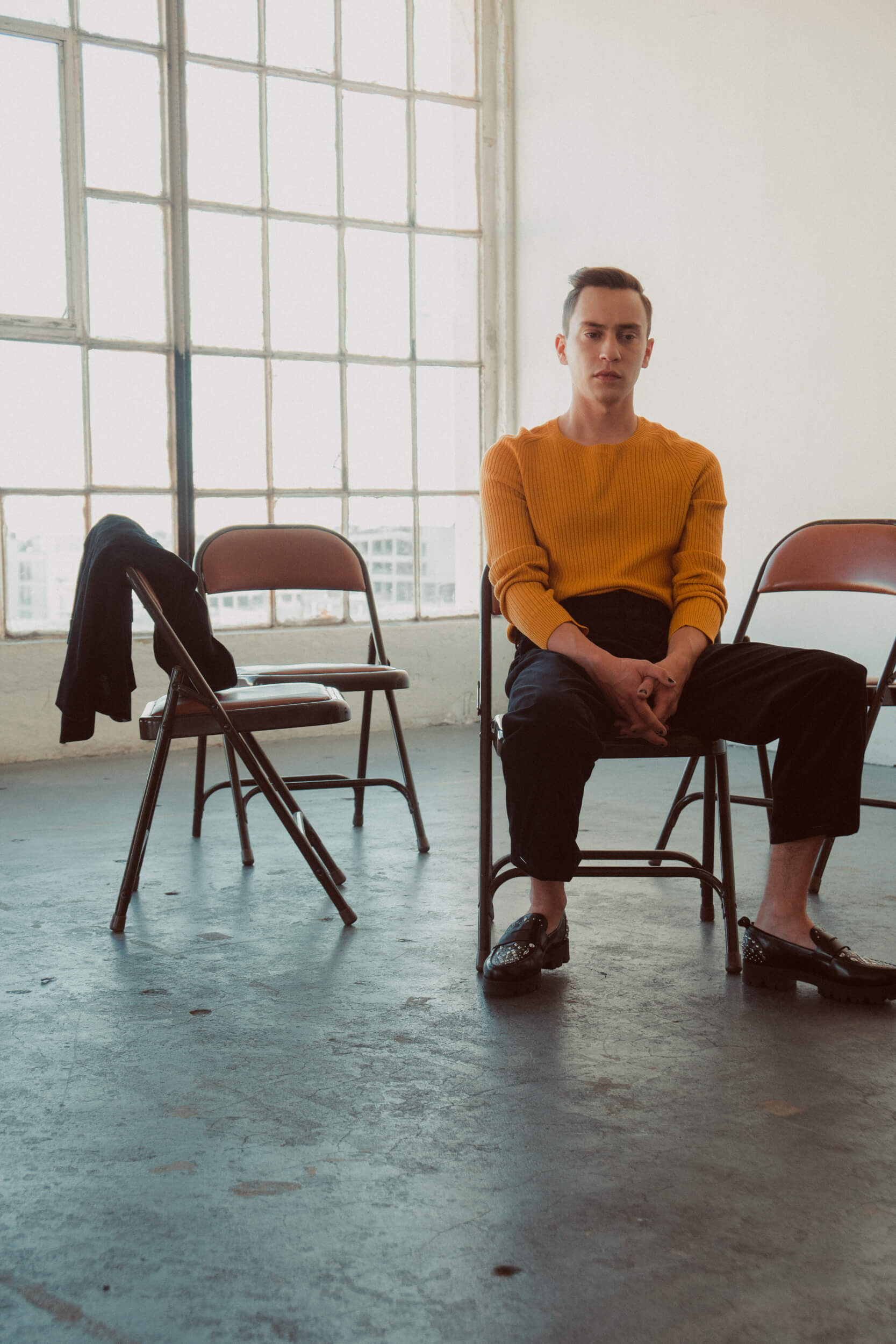
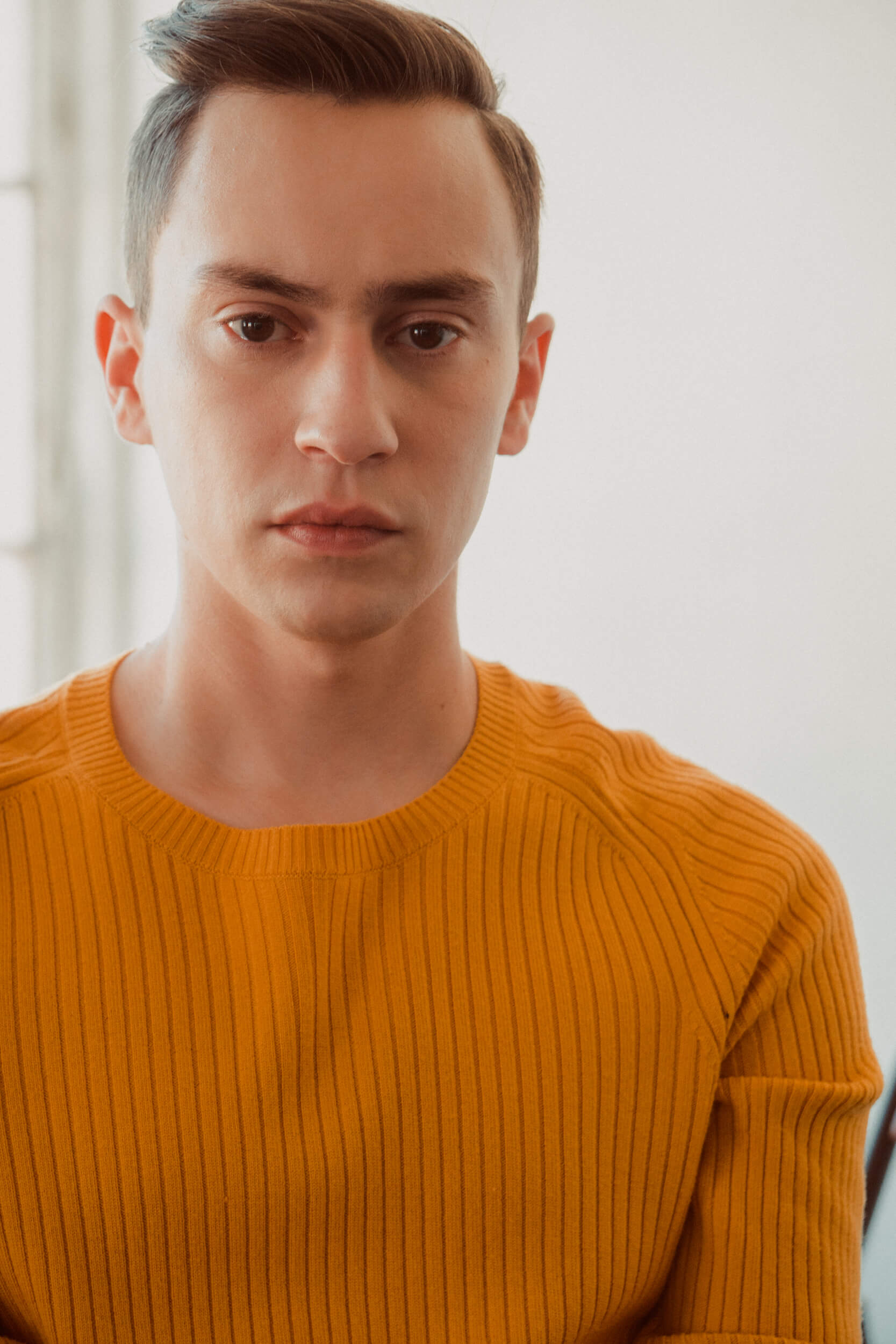
If the aliens came to Earth and they had never listened to music at all, what three albums should they listen to?
They should probably start with some classical music! I always believe you should listen to music in the right order, so maybe Beethoven and then jump ahead to Little Richard, and then jump ahead again to The Clash.
I think it was Roger Miret from Agnostic Front who said, “Never trust a hardcore kid who didn’t listen to punk rock” and that’s a quote that I always keep with me. I think it helps to understand, to listen to the origins; my dad raised me like that with all kinds of music.
Your passion for music came from your family, right?
Yes, my dad worked in the music industry and when I was a kid there were walls and walls of CDs in my house, every genre of music.
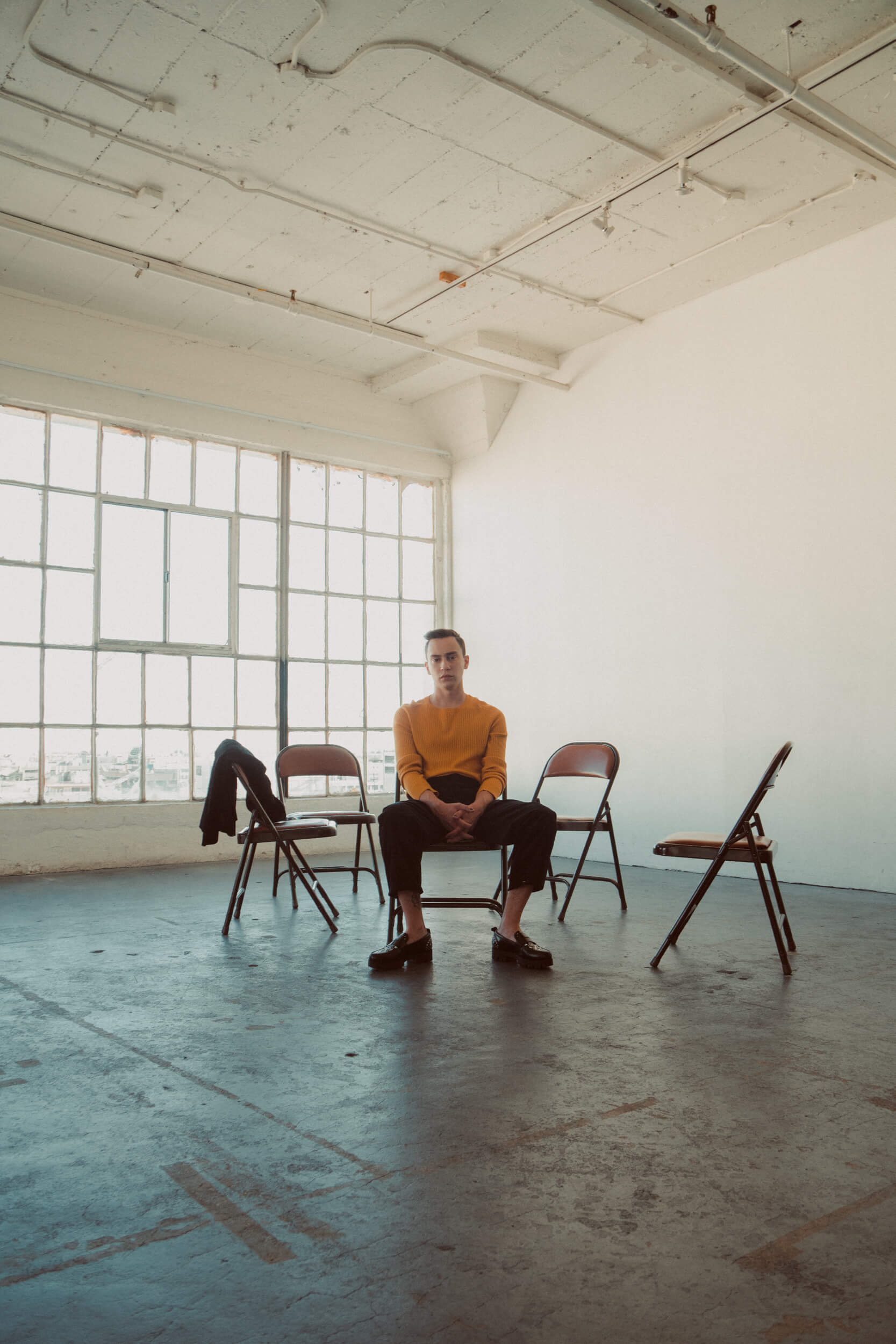
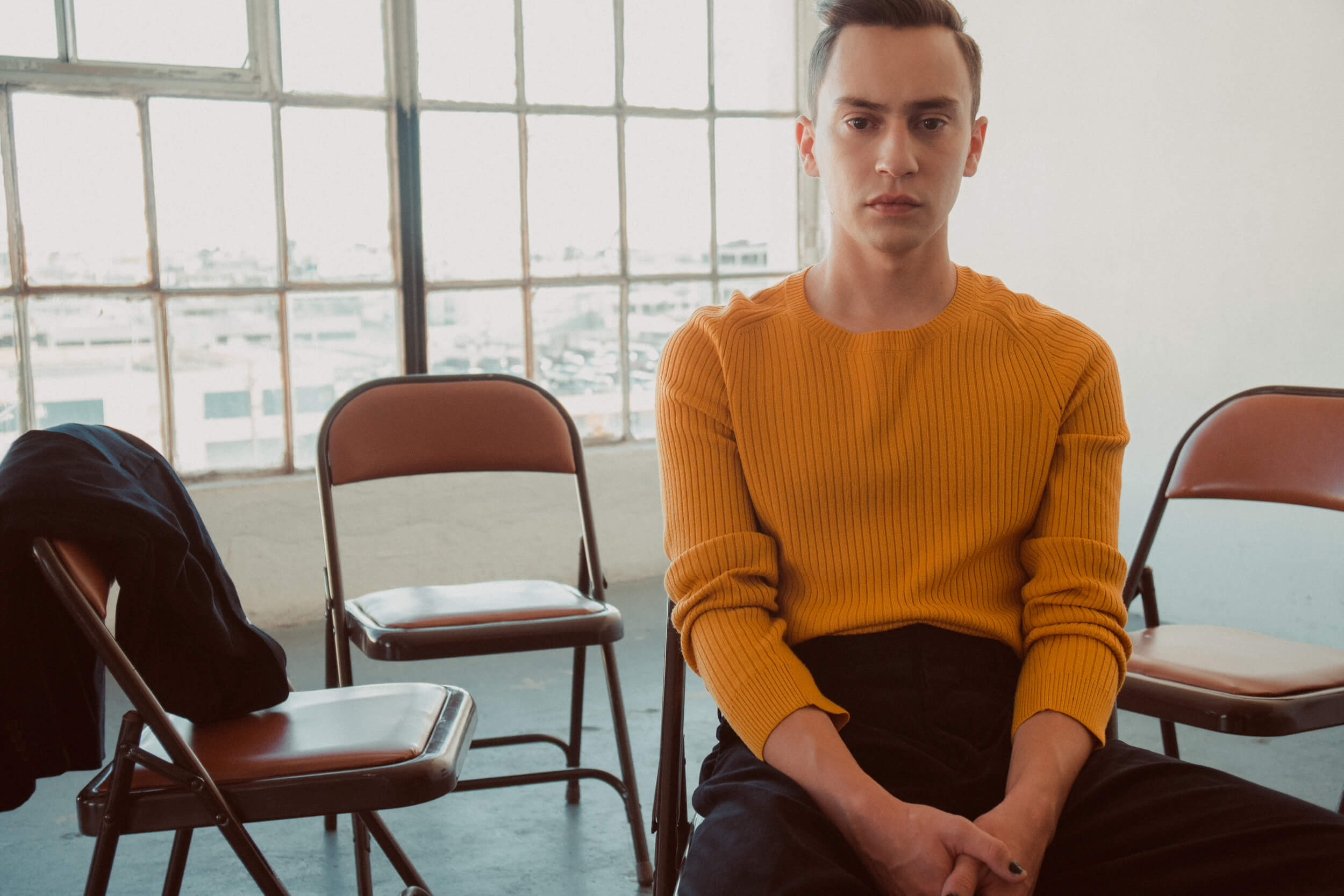
“…when I was a kid there were walls and walls of CDs in my house.”
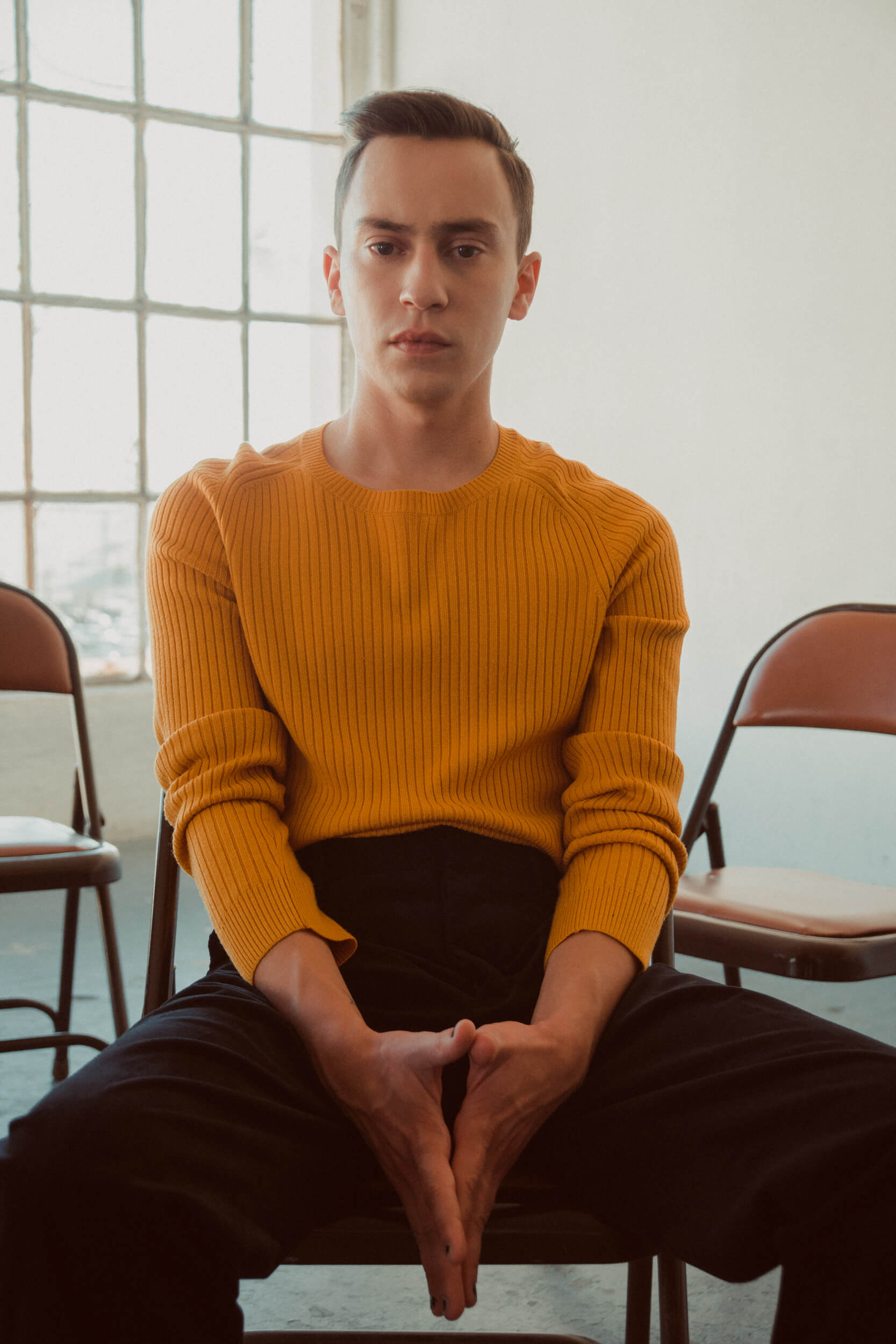
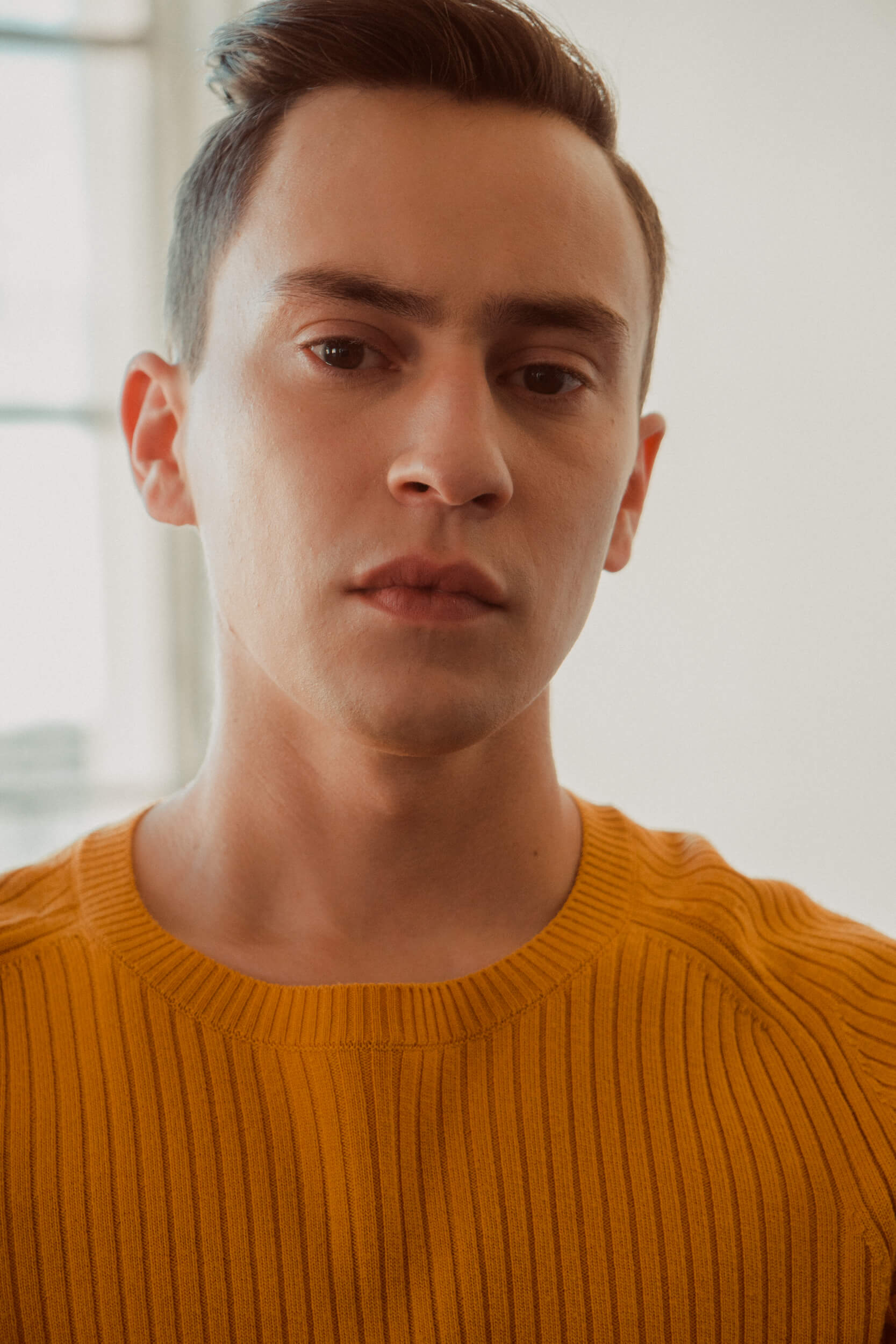
What’s the book on your nightstand?
I’m currently finishing up “1493” by Charles C Mann. I loved “1491” and I’ve had “1493” sitting on my nightstand for ages but now that I’ve been in isolation I could finally blast through it. So far it’s as incredible as the previous book and eerily relevant to current events. I would highly recommend both to everyone.
Have you ever had an epic fail on set or on stage?
No! I mean, nothing too bad, I’m usually not that clumsy at work, just in the rest of my life.
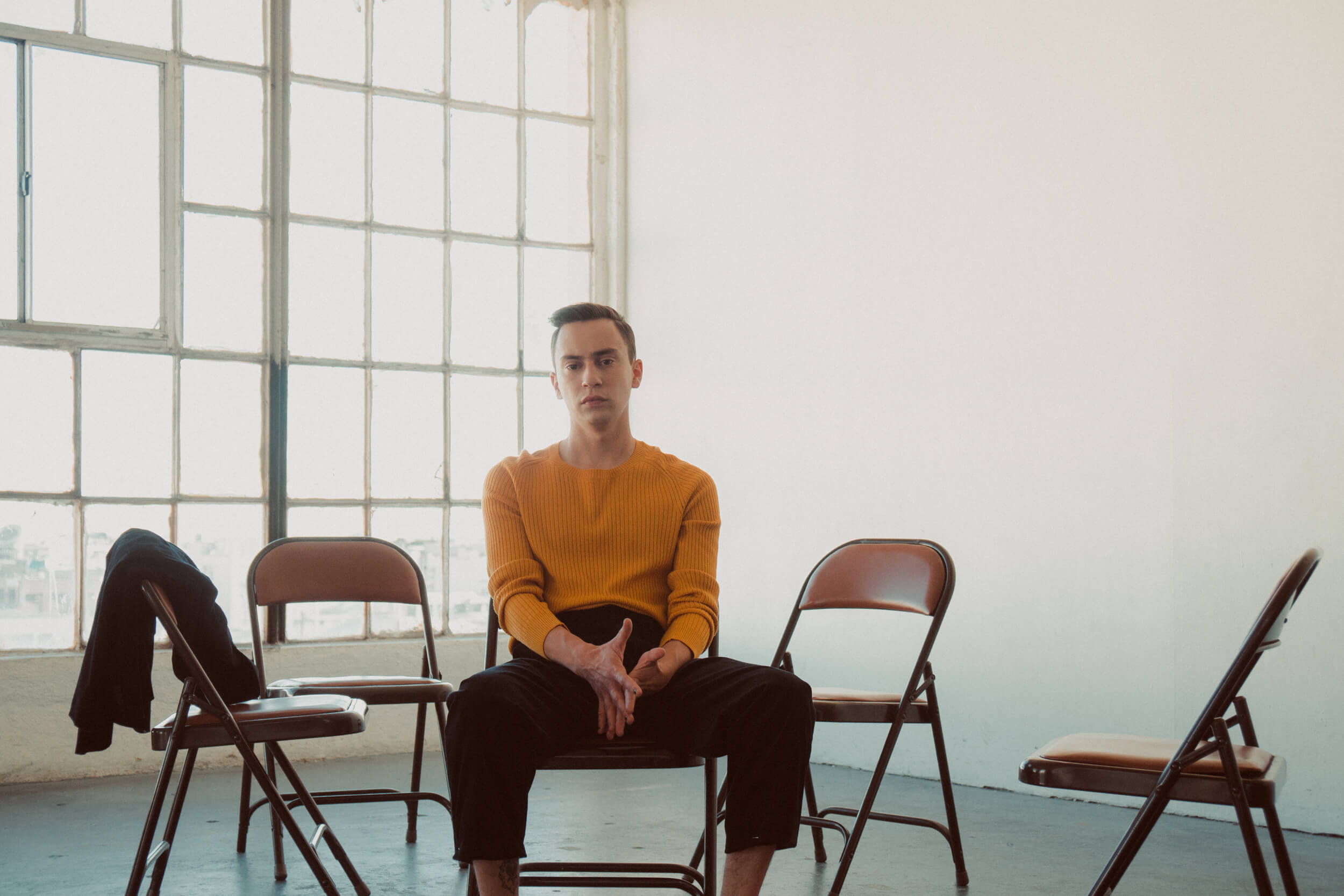
The Film Wall
35mm & Fuji Instax



